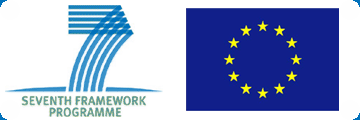Energy, Democracy and Development: the case of the Middle East and North Africa
International seminar hosted by FRIDE
3 October 2008, 9.30 a.m. - 6.00 p.m., Madrid / Spain
This seminar, convened by FRIDE, aims to examine the links between European polices on development co-operation, energy security and the promotion of good governance. It draws on the expertise of practitioners, policy experts and academics including Bernard Savage, former EU Ambassador to Saudi Arabia, Fred Halliday, Visiting Scholar at CIDOB, Yahia Said, Director the MENA region at Revenue Watch and Gehad Auda, Professor of Political Science at Helwan University in Cairo. Taking the specific case studies of Egypt and Algeria as a means of evaluating the implementation of EU policies for the MENA at the country-level, participants will formulate recommendations on future European engagement in the region. This seminar, held under Chatham House rules, is aimed at policy-makers, development specialists and students of the region. If you would like to attend please contact Edward Burke at eburke@fride.org
Report on the Seminar
On the 3rd of October, FRIDE convened a seminar in Madrid entitled “Energy, Democracy and Development: Relations between the European Union and the Middle East and North Africa.”
Among the participants who travelled to Madrid were Ambassador Bernard Savage, until recently EU Ambassador to Saudi Arabia, Yahia Said, Director for the Middle East and North Africa, Revenue Watch Institute, Dr. Gehad Auda, Head of Political Science at Helwan University in Cairo, and Fred Halliday, ICREA Research Professor at IBEI in Barcelona.
There was a wide range of observations made during the course of the day. Many participants felt that European energy initiatives in the region to date had been focused on expediting energy resources from the region to European markets without due consideration being paid to linking the energy trade to governance and development policies.
Others noted that the avowed desire of EU member states to adopt a common European approach to energy in the MENA is in practice being undermined by a preference by some member states to compete for national advantage in the region.
Member states needed to link their commercial interests to an overall strategy that clearly sets out European interests in the region and moves to address the governance deficit that is at the root of the fragility of key producer states.
Europe should also beware of empty rhetoric on human rights and political reform in the region but should adopt practical steps that balance immediate energy trade interests with the long-term interest of advancing good governance and political reform in the region. A FRIDE paper drawing on the conclusions of the conference will be made available shortly.
Photos © by FRIDE




